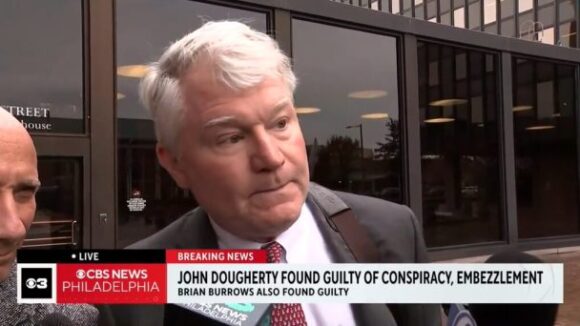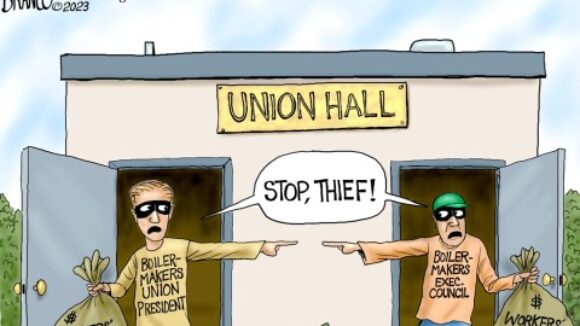Indiana is one of more than 30 states that statutorily authorize and promote union monopoly-bargaining power over teachers in K-12 public schools.
Under Indiana law, teachers and other K-12 employees are routinely forced to accept a single union as their “exclusive” representative in negotiations with school officials on matters concerning their pay and benefits. Both voluntary union members and educators who would never voluntarily join a teacher union are subject to Big Labor monopoly bargaining.
For years, operatives of the National Education Association-affiliated Indiana State Teachers Association (ISTA) union utilized their monopoly privileges and, it seems, ample guile to induce school districts to purchase health policies for their employees from an ISTA-controlled trust.
In 2009, ISTA’s insurance trust went bust in large part due to having recklessly engaged in high-risk trading, and Indiana school districts were left holding the bag for roughly $27 million in losses.
Subsequently, the state of Indiana sued the ISTA and NEA union hierarchies, charging that much of the money school districts had forked over to the trust that was supposed to be used for health claims was instead comingled by ISTA bosses with funds from other sources without school officials’ knowledge.
The lawsuit further charged, as the Indianopolis Star reported back in March, that ISTA union kingpins had “unlawfully sold securities without registering them and engaged in fraudulent misrepresentation in selling . . . insurance products to school districts.”
Indiana contended that NEA as well as ISTA bosses were liable for damages in the case for several reasons, including the fact that the NEA had “supervised and partially paid the salaries of ISTA’s UniServ directors, who negotiated with school districts and dealt with the insurance fund,” according to the Star account.
At a federal trial early this year, NEA union bosses brazenly denied any responsibility for the allegedly illegal actions of UniServ staff on their payroll.
But on March 26, U.S. District Court Judge Sarah Evans Barker rejected union lawyers’ motion for summary judgment on the implausible grounds that NEA officials aren’t responsible for the actions of employees who break the law in the course of doing their union jobs and that the ISTA trust was not an “investment.” Barker observed that she was “troubled” by union lawyers’ “incorrect characterization of the facts” and instructed NEA and ISTA union bigwigs to “prepare for trial.”
Instead, to avoid being tried for their alleged unlawful sale of securities and fraudulent misrepresentation, teacher union chiefs reached a settlement with the state of Indiana in August.
Late Tuesday the Star reported (see the full story in the link below) for the first time on the terms of the just-finalized deal:
Indiana State Teachers Association and its parent will pay the state $14 million by Dec. 13 to settle a long-running lawsuit over ISTA’s defunct insurance trust.
The money will be distributed to 27 school districts around the state that had bought health disability coverage for employees under the failed ISTA plan . . . .
Given the strength of the evidence against them and the weakness of the legal arguments they have used to deny culpability, one would have to say that teacher union kingpins got off easy in only being forced to reimburse Indiana school boards for half the money they swindled.
The record in Indiana v. ISTA illustrates the point that, while no private person or group deserves to wield government-granted monopoly-bargaining power over any other party, the bosses of the NEA teacher union and its subsidiaries are especially undeserving. This case is just one of many examples on the record showing that teacher union bosses in state after state take advantage of their special privileges to secure their own objectives, rather than benefit the teachers they purportedly “represent.”
To forestall future fiascoes like the one now winding down in Indiana, the National Right to Work Committee is fighting to repeal all state laws authorizing government union monopoly-bargaining over teachers and other public servants.
ISTA must pay state $14M by Dec. 13 in insurance suit


